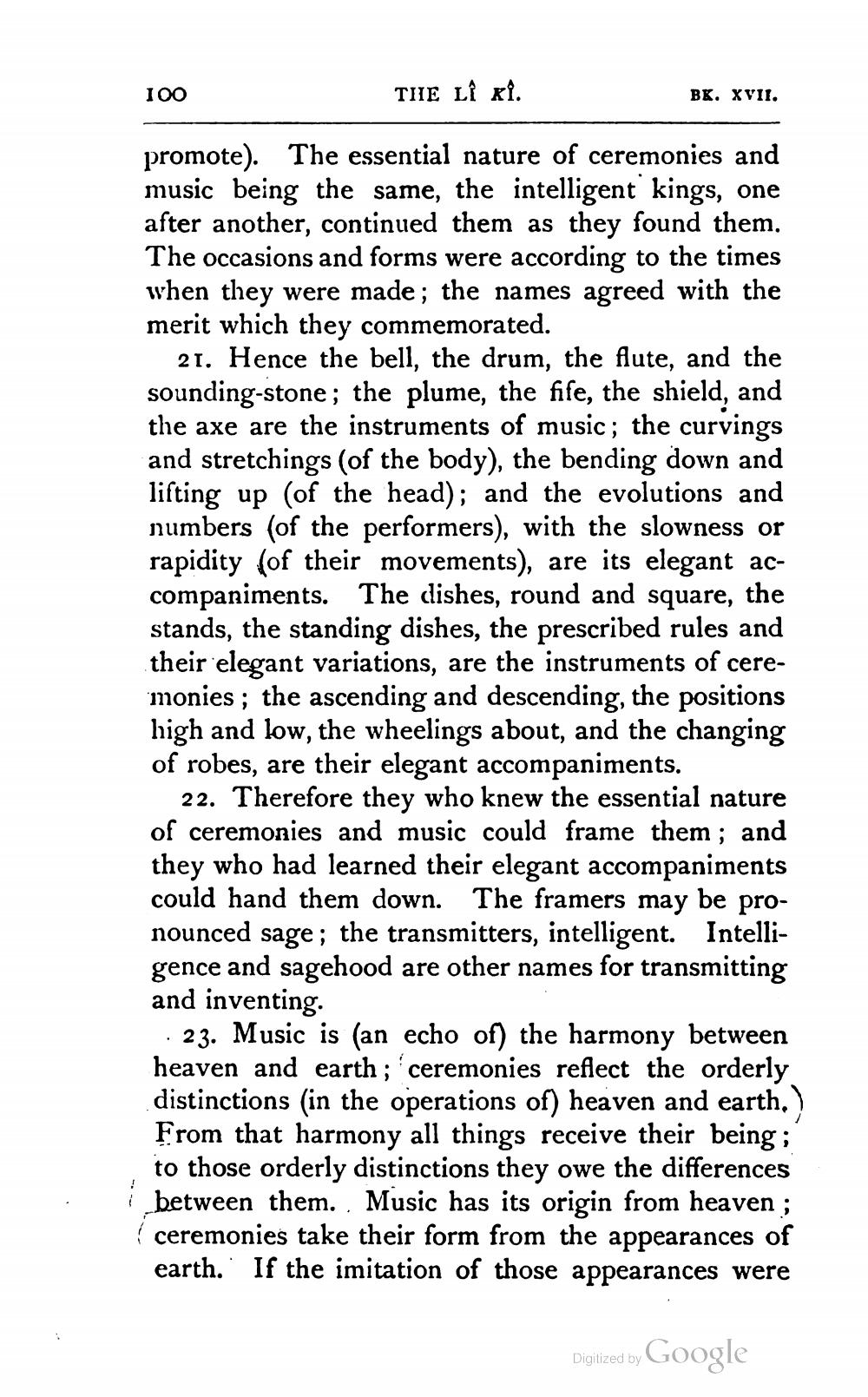________________
100
THE LÎ xi.
BK. XVII.
promote). The essential nature of ceremonies and music being the same, the intelligent kings, one after another, continued them as they found them. The occasions and forms were according to the times when they were made ; the names agreed with the merit which they commemorated.
21. Hence the bell, the drum, the Aute, and the sounding-stone; the plume, the fife, the shield, and the axe are the instruments of music; the curvings and stretchings (of the body), the bending down and lifting up (of the head); and the evolutions and numbers (of the performers), with the slowness or rapidity (of their movements), are its elegant accompaniments. The dishes, round and square, the stands, the standing dishes, the prescribed rules and their elegant variations, are the instruments of ceremonies; the ascending and descending, the positions high and low, the wheelings about, and the changing of robes, are their elegant accompaniments.
22. Therefore they who knew the essential nature of ceremonies and music could frame them; and they who had learned their elegant accompaniments could hand them down. The framers may be pronounced sage; the transmitters, intelligent. Intelligence and sagehood are other names for transmitting and inventing.
. 23. Music is (an echo of) the harmony between heaven and earth ; ceremonies reflect the orderly distinctions (in the operations of) heaven and earth.) From that harmony all things receive their being; to those orderly distinctions they owe the differences
between them. . Music has its origin from heaven ; ( ceremonies take their form from the appearances of earth. If the imitation of those appearances were
Digitized by Google




